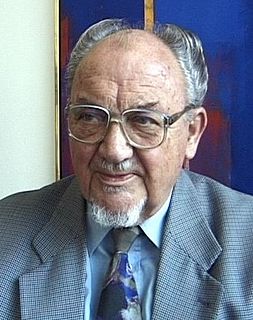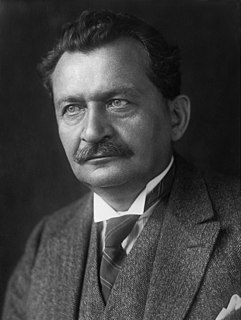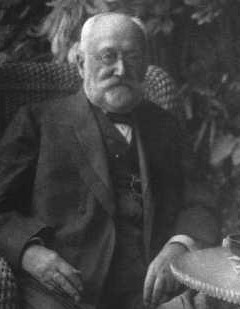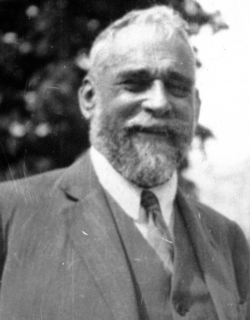
General elections were held in the Netherlands on 5 July 1922. They were the first elections held under universal suffrage, which became reality after the acceptance of a proposal by Henri Marchant in 1919 that gave women full voting rights. Almost all major parties had a woman elected. The number of female representatives increased from one to seven. Only the Anti-Revolutionary Party principally excluded women from the House of Representatives. Another amendment to the electoral law increased the electoral threshold from 0.5% to 0.75%, after six parties had won seats with less than 0.75% of the vote in the previous elections.

General elections were held in Denmark on 10 January 1984, after the opposition voted against the government's state budget bill. Although the Social Democratic Party remained the largest in the Folketing with 56 of the 179 seats, the Conservative People's Party achieved its best-ever result, gaining 16 seats. The coalition partners Venstre and the Christian People's Party also increased their representation, although the fourth government party, the Centre Democrats, lost seven of their 15 seats. Overall the coalition won three more seats, and Poul Schlüter continued as Prime Minister.

Federal elections were held in Germany on 14 September 1930. Despite losing ten seats, the Social Democratic Party of Germany (SPD) remained the largest party in the Reichstag, winning 143 of the 577 seats, while the Nazi Party (NSDAP) dramatically increased its number of seats from 12 to 107. The Communists also increased their parliamentary representation, gaining 23 seats and becoming the third-largest party in the Reichstag.

Federal elections were held in Germany on 7 December 1924, the second that year. The Reichstag had been dissolved on 20 October 1924. The Social Democratic Party remained the largest party in the Reichstag with an increased share of the vote, winning 131 of the 493 seats. Voter turnout was 78.8%.

Federal elections were held in Germany on 16 June 1898. Despite the Social Democratic Party (SPD) receiving a plurality of votes, the Centre Party remained the largest party in the Reichstag after winning 102 of the 397 seats, whilst the SPD won just 56. Voter turnout was 68.1%.

Federal elections were held in Germany on 16 June 1903. Despite the Social Democratic Party (SPD) receiving a clear plurality of votes, the Centre Party remained the largest party in the Reichstag after winning 100 of the 397 seats, whilst the SPD won only 81. The voter turnout for the election was 76.1%.

Federal elections were held in Germany on 15 June 1893. Despite the Social Democratic Party (SPD) receiving a plurality of votes, the Centre Party remained the largest party in the Reichstag after winning 96 of the 397 seats, whilst the SPD won just 44. Voter turnout was 72.4%.

Federal elections were held in Germany on 12 January 1912. Although the Social Democratic Party (SPD) had received the most votes in every election since 1890, they had never won the most seats, and in the 1907 elections they had won fewer than half the seats of the Centre Party despite receiving over a million more votes. However, this election saw the party win more than double the number of votes of the second-placed Centre Party and become the largest party, winning 110 of the 397 seats.

Federal elections were held in Germany on 25 January 1907. Despite the Social Democratic Party (SPD) receiving a clear plurality of votes, they were hampered by the unequal constituency sizes that favoured rural seats. As a result, the Centre Party remained the largest party in the Reichstag after winning 105 of the 397 seats, whilst the SPD won only 43. Voter turnout was 84.7%.

General elections were held in Luxembourg on 12 June 1994, alongside European Parliament elections. The Christian Social People's Party remained the largest party, winning 21 of the 60 seats in the Chamber of Deputies. It continued the coalition government with the Luxembourg Socialist Workers' Party.

Folketing elections were held in Denmark on 25 May 1909. Although the Social Democratic Party received the largest share of the vote, the Venstre Reform Party won the most seats. Voter turnout was 71.3%.

Folketing elections were held in Denmark on 23 March 1943 alongside Landsting elections, except in the Faroe Islands where they were held on 3 May. They were the first elections during the German occupation, and although many people feared how the Germans might react to the election, the event took place peacefully. The voter turnout was at 89.5%, the highest of any Danish parliamentary election, and became a demonstration against the occupation. The Social Democratic Party remained the largest in the Folketing, with 66 of the 149 seats. After the elections, leading German newspapers expressed disappointment and indignation with the lack of political evolution among the Danish voters.

General elections were held in Romania in December 1937. The Chamber of Deputies was elected on 20 December, whilst the Senate was elected in three stages on 22, 28 and 30 December. The National Liberal Party remained the largest party, winning 152 of the 387 seats in the Chamber of Deputies and 97 of the 112 seats in the Senate elected by universal male vote, although it lost its majority in the Chamber. The party's unexpectedly poor showing meant they could not form a coalition with either their arch-rivals the National Peasants' Party or with the Iron Guard's Everything for the Country Party, King Carol II invited the poet Octavian Goga to form a government, despite the fact that his National Christian Party finished fourth and had an avowedly anti-Semitic platform.
Federal elections were held in Switzerland on 28 October 1928. Although the Social Democratic Party received the most votes, the Free Democratic Party remained the largest party in the National Council, winning 58 of the 198 seats.
Federal elections were held in Switzerland on 25 October 1931. Although the Social Democratic Party received the most votes, the Free Democratic Party remained the largest party in the National Council, winning 52 of the 187 seats.

A legislative election to elect the members of the 11th Imperial Council were held in Cisleithania, the northern and western ("Austrian") crown lands of Austria-Hungary, on 14 and 23 May 1907. They were the first elections held under universal male suffrage, after an electoral reform abolishing tax paying requirements for voters had been adopted by the Council and was endorsed by Emperor Franz Joseph earlier in the year. However, seat allocations were based on tax revenues from the States.

Constituent Assembly elections were held in Austria on 16 February 1919. The result was a victory for the Social Democratic Workers' Party, which won 72 of the 170 seats. The party was largely supported by the working class, whilst farmers and the middle class voted mainly for the anti-Anschluss Christian Social Party. Voter turnout was 84.4%. It is generally reckoned as the first free election ever held in Austria.

Parliamentary elections were held in Latvia on 6 and 7 October 1928. The Latvian Social Democratic Workers' Party remained the largest party, winning 25 of the 100 seats.

General elections were held in Liechtenstein on 11 March 1918, with a second round on 18 March. They were the first elections held in the country contested by political parties, as the Christian-Social People's Party and Progressive Citizens' Party had been founded that year. The Progressive Citizens' Party emerged as the largest in the Landtag, winning seven of the 12 elected seats.

General elections were held in Romania in December 1928. The Chamber of Deputies was elected on 12 December, whilst the Senate was elected in three stages on 15, 17 and 19 December. The result was a victory for the governing National Peasants' Party-led alliance, which won 348 of the 387 seats in the Chamber of Deputies and 105 of the 110 seats in the Senate elected through universal male vote. Of the 348 Chamber seats won by the alliance, the National Peasants' Party won 326, the Social Democratic Party won 9, the German Party won 8, the Hungarian People's Party won 2 and three were won by Jewish candidates. It is generally regarded as the freest election ever held in Romania until the 1990s.
























